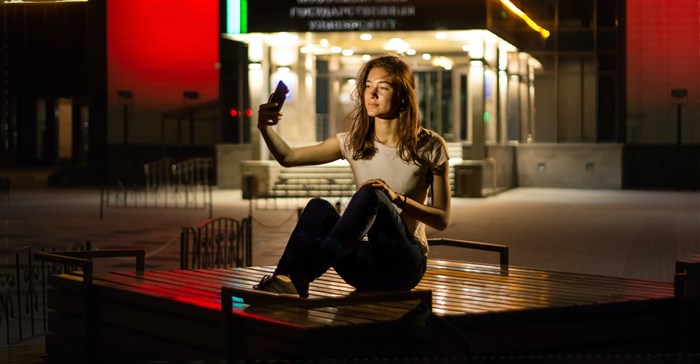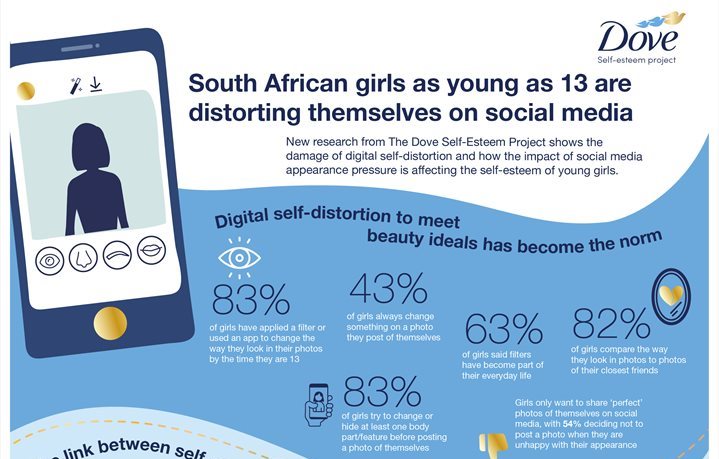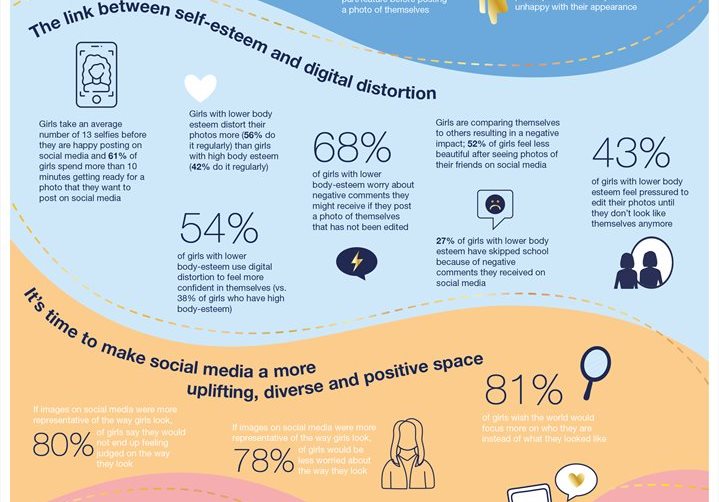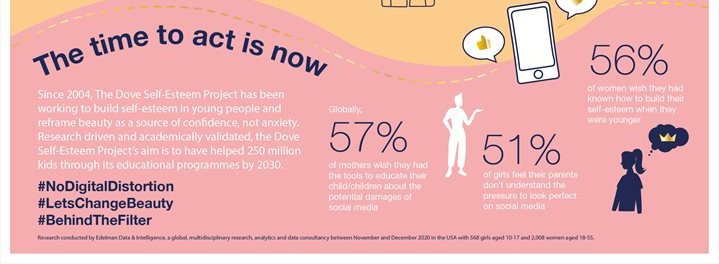






Dove recently launched the ‘Reverse Selfie’ film which represents how far retouching apps can distort reality and how young girls are digitally self-distorting their appearance for social media. Rooted in new research commissioned by the Dove Self-Esteem Project, the film undoes the emotional and physical stages of posting a selfie; highlighting how editing tools once only available to the professionals can now be accessed by young people at the touch of a button without regulation.
Rather than models on set, it’s girls in their bedrooms filtering away their identities. After a year of increased screen-time due the Covid-19 pandemic and subsequent increased exposure to unrealistic beauty ideals and pressures, there has never been a more important time to act.
The research that informed the making of the film highlights some major issues that girls are facing around the world, finding that 80% of girls use retouching apps by the age of 13 globally. In South Africa, that number is even higher – 83%, highlighting the issues that social media brings about for the young people in our country.
Sphelele Mjadu, Beauty & Personal Care senior PR manager for Africa at Unilever, said, “In our efforts to create a world where beauty is a source of confidence, not anxiety, we would like to raise awareness about the importance of having conversations with the young people in your life about self-esteem and digital distortion in social media. If the research that has been done is anything to go by, then we as individuals throughout this country need to unite to empower young people to be their most authentic selves.”
Dove South Africa has partnered with well-known personalities and advocates for real beauty; Lesego Legobane (also known as Thickleeyonce), Hulisani Ravele, Bothlale Boikanyo, Chantel Struwig and Tasneem Valley to name a few. Through these partnerships they hope that they can continue to create awareness, educate and remedy the negative effects of social media and create a movement for change, standing against digital distortion of images on social media.
Social media filters and editing apps have dramatically changed the way girls can be creative with their photography, allowing them to experiment with self-expression. However, they can have a lasting and harmful impact on the self-esteem of those who use them.
According to the Dove Self-Esteem Project:
South African girls have expressed that if images on social media had a more realistic representation, they would feel more confident:

Young people in South Africa are facing serious challenges in the digital era where social media currency and self-esteem are in a constant battle.
The Dove Self-Esteem Project research shows that using educational tools with young people; workshops, online articles, and digital games, can boost their body confidence and skills to navigate media in a healthier way.
Professor Phillippa Diedrichs, who is a research psychologist at the Centre of Appearance Research at the University of West England, is also a body image expert. She said, “Although certain aspects of social media can promote connection and well-being, in recent years dozens of scientific studies have shown that social media can negatively influence body confidence, mood, and self-esteem. This happens when users spend significant amounts of time posting selfies, using editing apps and filters to alter their appearance, comparing themselves to others, and seeking validation through comments and likes. It’s therefore imperative that we help young people to develop skills to navigate social media in a healthy and productive way.”

Created in partnership with the Centre for Appearance Research at the University of West England, the Dove Self-Esteem Project tools are academically validated and free to download. This includes the new Confidence Kit, a dedicated online tool which empowers parents and carers to help children navigate appearance pressures and the world around them.
The kit includes a dedicated section to help adults understand the challenges that young people face online, to encourage conversation and provide tips on how to make social media a healthy place where young users can flourish – from curating a positive and diverse social media feed to recognising that social media is a highlight reel of people’s ‘best bits’.
The Confidence Kit is part of the Dove Self-Esteem Project’s mission to help 250 million kids with self-esteem education by 2030.

Dove aims to contribute to a more inclusive, less apologetic definition of beauty so young people growing up with social media also grow up with confidence - #NoDigitalDistortion. Take action with us at Dove and download the new Confidence Kit to talk to a young person in your family or your community about social media and self-image. Use the dedicated section on social media and discuss the challenges young people face online, to help make social media a positive space where they can freely be themselves.
For more information on the Confidence Kit, go here.